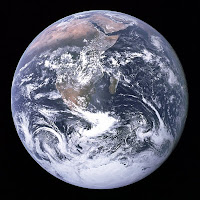A New Measure of Care
There is a saying that goes something like: you can measure the moral strength and kindness of a society by how well it takes care of the children and the elderly. It is one of those sentiments that rings true up against the many self-serving distractions and competing interests for time and resources that we could otherwise apply for care of the vulnerable.
But this idea, though noble, is incomplete and so “last century”. Conspicuously missing from the list of the vulnerable is our Living Planet.
This paper thin phenomena that we call life that envelopes the water slogged, molten mass of mineral we call Earth is unique beyond words. In a cosmos of unfathomable distance and variety, it is likely that we might find other forms of life. But it would be rare to find living conditions as specific and unique as this Living Planet, conditions that would allow humanity as we know it to thrive.
Through the course of human history Nature was the realm of both creation and destruction: the seas that swallowed our ships but gave us fish, the land that toppled our buildings but grew our grains, and skies that flooded our homes but gave us nourishing rain.
Now we find ourselves reducing Nature. Nature no longer means the whole, vast and unknowable power that was the tool of God where Nature could never be tamed except in little corners with only the hope of permanence in spite of its power to destroy. Today we re-engineer it, usurp it, trash it, hide from it and force much of its uniqueness into extinction. We still succumb to its powers as made clear in Haiti and Chile but we have stepped over a threshold in which Nature now suffers wholly at our whim. It seems only a matter of time before even earthquakes will be of little consequence.
We need a new mind to sustain Life on Earth. We can no more ignore the source of our sustenance any more than we can ignore children. To do so is to cause an erosion of our health and perhaps our demise.
We have to cultivate a better relationship with Nature beginning at home and in our community. It must be personal and public, it must be intimate and civic. We will get what we give. In this case, a love of the living world will yield a healthy, diverse ecology in which we are protectors and patrons of its complexity and resilience. In return it will give us the air, water, food, health, beauty, joy, inspiration, wisdom and meaning we need to thrive.
We can measure ourselves by how well we care for the children, elderly, infirm, pets and, really, all life on the Living Planet. It has so much to give us in return. If our relationships are healthy, we can all be healthy for a long time to come…t.o.d.


